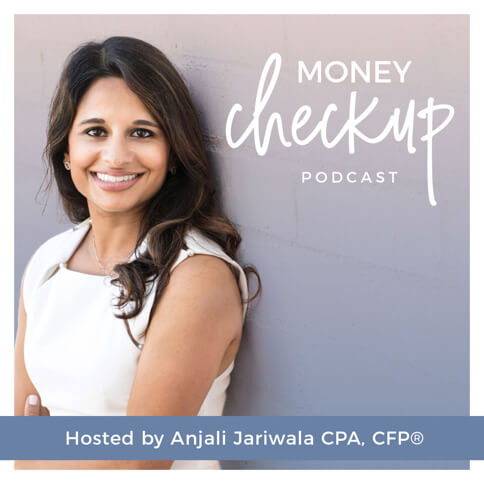This year has already been a historic one for the financial markets. In early January, the price of Bitcoin soared to its highest levels ever, leading to renewed interest in the cryptocurrency. And at the end of the month, retail investors helped drive up the share price of video game retailer GameStop, forcing several hedge funds into a short squeeze and causing ripple effects throughout the market.
If you’ve been tempted to buy into Bitcoin, GameStop, or other buzzy investment opportunities, you might be experiencing FOMO. The “Fear of Missing Out” drives lots of our day-to-day decisions, from our eagerness to try a critically acclaimed restaurant to our desire to visit a certain place while it remains “undiscovered.”
FOMO can also drive us to make investment decisions that aren’t in line with our existing strategy. When we see headlines about skyrocketing share prices and hear friends talk about their profits from retail trading, it’s tempting to want to participate. “What if this is a great opportunity and I miss out?,” we think.
Riding the wave of FOMO is, generally speaking, not a prudent way to invest for your future. Stick to your plan when it comes to saving for retirement and other goals, like kids’ education.
If you have some discretionary income and want to play the markets, make sure you understand the forces behind these trends. And never invest more than you’re willing to lose.
What’s Happening With Bitcoin?
Bitcoin received intense media attention this year as its price has shot up to record-breaking highs. At one point the value of a single Bitcoin eclipsed $40,000.
This isn’t the first time Bitcoin, a notoriously volatile asset, has captured headlines as its value soars. But it once again has investors wondering if cryptocurrencies should be part of their portfolio.
Bitcoin has been available to investors since 2008. It is a currency, which means it can be used to buy and sell goods, albeit only in a very limited number of circumstances — you can’t walk into Trader Joe’s and buy groceries with Bitcoin yet, as some early boosters predicted.
Bitcoin differs from traditional currencies in several important ways. It never takes a physical form — there are no coins or bills — and it is decentralized, meaning no central bank issues the currency and no regulator or nation backs it. Bitcoin also cannot be stored in traditional banks. Instead, Bitcoin is a form of code known as blockchain. It is stored in a user’s “digital wallet,” which the user can access using a unique key, similar to a password. If a user loses their key, they lose access to their Bitcoin.
Part of the reason the price of Bitcoin is spiking is that there is a pre-existing cap on how much of the currency will be released. Only 21 million Bitcoins will be created, and there are already 18.6 million coins in circulation. As Bitcoin looks more and more like a limited resource, basic supply and demand applies: Lots of investors want to buy these assets but there are a limited number of them, so the price goes up.
It is difficult to predict what will happen with all kinds of investments. Bitcoin’s price is particularly volatile, and has been throughout its history. And unlike traditional stocks, Bitcoin is not yet regulated by the U.S. or foreign governments. Regulations may change how Bitcoin is traded or what information investors are required to disclose.
I’ve spoken to CNBC several times in recent months about Bitcoin’s rise and slump. In late January, I told writer Carmen Reinicke that it’s OK to purchase some Bitcoin on a day when the price is down, as long as you treat it like the volatile asset it is. Don’t invest any money you aren’t prepared to lose.
“Throw some money into it and kind of let it stay in there and season for a while,” I said. “Just so you’re not making decisions every time there’s a fluctuation in price, which at this point happens every few days.”
What Happened With GameStop?
In the midst of hype around Bitcoin, another stock rose to the forefront in late January: Beleaguered video game retailer GameStop.
GameStop’s share price soared 1,700% in a matter of days. After custodians limited its trading, it dropped temporarily, then came roaring back when restrictions were lifted.
High-performing stocks aren’t necessarily unusual, but GameStop is not a high-performing company. It was losing money and had fallen out of favor with the markets prior to this rally.
GameStop stock became ripe for short selling, a process in which investors bet that a company’s share price will fall and profit if they turn out to be right. In brief, short selling is when you borrow shares in hopes that the price will drop, at which point you buy back those shares at a lower price. The investor returns the borrowed shares and pockets the difference.
Various hedge funds made a bet that the share price of GameStop, along with other companies like AMC and Bed, Bath and Beyond, was going to fall. Then, a group of individual traders organized on social media and planned to begin buying shares in GameStop, driving the price up. If the price of a stock that you’ve shorted ends up soaring, you need to buy the stock back to cover your bets, which drives the price further up. This is called a “short squeeze.”
Between individual investors and hedge funds racing to buy back their shares, the price of GameStop shares soared. Some hedge funds lost a great deal of money. Some individual investors made it out big. A lot of investors are somewhere in between.
The market volatility also caught the eyes of legislators. Robinhood, a stock trading app popular among young adults, halted trading of GameStop shares briefly last week because its clearinghouse increased deposit requirements due to market volatility. The app and other stock trading platforms may soon find themselves facing more regulation, like many players in this saga.
If you enjoy trading individual stocks, then like Bitcoin, that’s OK. Just don’t buy in because everyone else is doing so. GameStop’s share price will eventually fall, and more investors may be left high and dry.
Resist Jumping on the Bandwagon
From a distance, the money others have made on Bitcoin and GameStop looks “easy.” It’s normal to feel a desire to get in on the action.
If you’re tempted to download a stock trading app and experiment with a small amount of money, that isn’t in itself a bad thing. But don’t rely on it for your retirement savings, and never spend more than you are willing to lose.
A recent article in The New York Times put it well: Although stock trading is “fun when it’s profitable, it is dangerous — and closer to gambling than to serious investing.”
But the best strategy for your financial future is one that you can stick with for many years. Despite periods of volatility, markets have historically always gone up. A steady investing strategy will help you stay the course toward your goal.
Disclaimer: This material is not to be construed as investment advice or a recommendation to buy or sell any security or currency. Investing involves risks including possible loss of principal. Stocks are subject to market fluctuation and other risks. Bonds are subject to increased risk of loss of principal during periods of rising interest rates and other risks. There is no assurance that any investment strategy will be successful. Diversification does not assure a profit or protect against loss.




